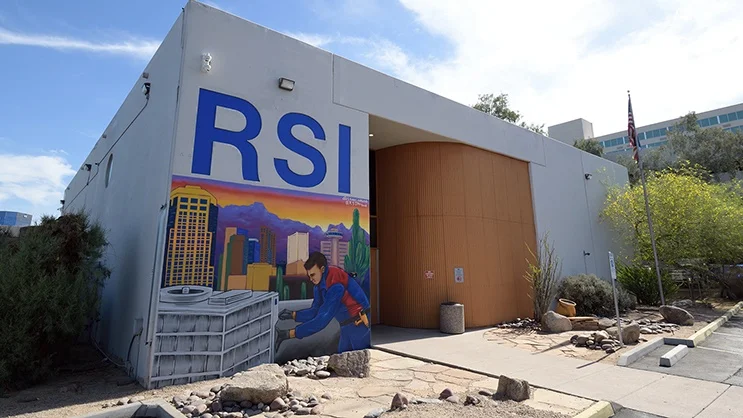RSI is a Great Training Option for Everyone
Learn more about how we can prepare you to advance your career.
If you’re looking for a vocation that offers variety and development opportunities throughout your career, you may want to consider entering the HVAC field. Below you’ll find three potential career advancement options that HVAC training graduates can pursue once they have acquired sufficient experience in the industry.
Design & Engineering
There are plenty of opportunities to advance in an HVAC career for those who have obtained design and mechanical engineering credentials. Mechanical engineers with a background in HVAC typically work in general building maintenance. HVAC engineers ensure adequate climate control in a variety of structures.
The responsibilities of this position normally include:
- Designing mechanical systems
- Establishing service protocol for heating, ventilation, plumbing and air conditioning applications
- Supervising work teams
- Negotiating vendor contracts
HVAC engineers are expected to have excellent computer, math, and physics skills. They also need to be good communicators and have strong attention to detail. Additional tasks of an HVAC engineer may involve:
- Equipment selection
- Duct and pipe sizing
- Site survey
- Spec analysis
- Installation drawings
HVAC engineers may design systems for residential, industrial, institutional, and commercial buildings, including schools, office buildings, and health care facilities. They work with clients, engineering and management colleagues, as well as installers and technicians. They may be employed by consulting or design firms, government organizations, facilities offices, or HVAC equipment sales businesses.
Get Started on the Path to a New Career
Fill out our form to learn how we can help you change your life.
Project Management
While the job definition of an HVAC project manager can vary, the position entails overseeing or consulting new HVAC projects. Planning a project from blueprint to finished product involves commissioning and coordinating the utility infrastructure for new and existing properties. To effectively execute a plan, you’ll need to be able to evaluate the site, facilities, equipment and performance parameters, such as time schedules, budget constraints and quality expectations.
Further responsibilities of an HVAC project manager can include:
- Monitoring deliveries
- Tracking vendor contracts
- Developing compliance benchmarks for air and water quality
HVAC project managers need to be well-organized, responsible, and communicative. Moreover, they must have strong math, physics, and reasoning skills. Those interested in project management should also have general knowledge about ancillary equipment such as:
- Fire-fighting systems
- Boilers
- Water treatment facilities
- Generators
HVAC project managers are normally not involved in hands-on processes like installation or repair. While they are overseeing the progress of the project, they keep their client updated and ensure that technicians adhere to schedule. They may be employed by HVAC installation businesses or work independently as consultants.
Sales
Acquiring an HVAC certificate or associate degree from RSI can give you a leg up if you’re interested in starting a career in HVAC sales. This field actually offers a variety of positions. Sales representatives sell HVAC equipment from manufacturers and wholesalers to businesses and government entities. They contact clients, learn about their climate-control needs, explain their products, and negotiate prices. Sales engineers explain the technical aspects of HVAC systems as they work with their company’s sales team to sell their equipment. They recommend systems and installation methods, modify products for clients, help solve problems, and sometimes assist with research and development of new equipment. Sales supervisors delegate sales representatives, assign schedules and territories, help determine sales goals, and prepare sales reports. Sales managers are in charge of developing sales activities, analyzing sales reports, and determining goals and strategies.
HVAC training at RSI exposes students to various types of equipment that they need to know about if you work in HVAC sales:
- Boilers
- Radiators
- Refrigeration units
- Chillers
- Ventilation systems
Anybody working in HVAC sales will need exceptional communication and interpersonal skills, as they work with clients, sales colleagues, engineers, managers, and manufacturers, among others. In addition, HVAC sales professionals must have sufficient expertise in HVAC technology, including math and physics. Any sales personnel typically works in a large business selling HVAC equipment.
Begin HVAC Training Today
If you have any questions about HVAC training or career development, please don’t hesitate to contact RSI’s career center for more information.




